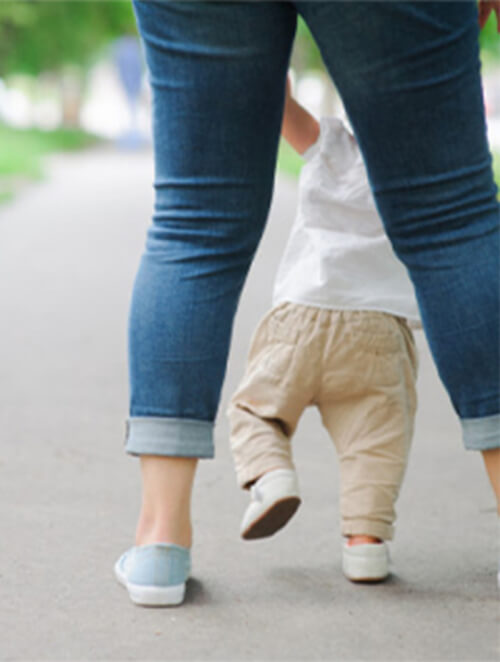Oral Care in Pregnancy: Why is it important to take care of your Oral Health during Pregnancy?
 23101
23101

super easy
A woman’s body undergoes a host of changes during pregnancy, including changes in the oral environment. Due to many myths surrounding the safety of dental care procedures, a lot of women receive less than adequate dental care during their pregnancy. However, if proper oral care is not taken, it can have detrimental effects on both the mother and their future baby’s health.
Pregnancy is not a disease state, and losing teeth during pregnancy is ‘not normal’. Nevertheless, changes in the hormonal levels directly affects the gums and indirectly cause tooth decay (due to increased cravings and sugar content). Pregnant women with poor oral health can experience premature delivery, low birth weight baby, gingivitis, pyogenic granuloma, dryness, erosion of teeth, loose teeth, and bleeding gums.
ORAL CHANGES SEEN IN PREGNANCY
Changes In the Gums
Higher levels of progesterone during pregnancy cause the gums to be highly sensitive to irritants like plaque. It increases vascular permeability and causes gums to bleed easily. Fear of bleeding gums causes further aversion to brushing and more plaque build-up. Thus pregnancy gingivitis and pregnancy tumors are very common, which can be prevented by routine checkups and deep cleaning. In most cases, the tumors heal on their own post-delivery. If unresolved, they can be excised with a laser or surgically. There is a higher risk to deliver low birth babies if a woman has attachment loss in the periodontium compared to women with healthy gums.
Also Read:Labor-childbirth
CHANGES IN THE TEETH:
Teeth are affected indirectly in pregnancy due to increased vomiting and food cravings.
- Food cravings are common in Eating a lot of sugar-rich foods and neglecting oral hygiene leads to cavities and pain.
- Frequent vomiting and not paying attention can create an acidic environment in the mouth and lead to erosion of
- Decreased salivary flow during pregnancy also causes increased susceptibility to
- Paying less attention to yourself and focusing more on the baby can also lead to oneself neglecting their oral health and causing
Tips to Deal with Nausea During Pregnancy
Eat your meals early, and also try to eat a light snack right before bed. It is also a good idea to have a little nocturnal nibble if you happen to wake up in the middle of the night to pee. Try wearing sea-band wristlets – readily available at medical stores. Tread gingerly. Ginger can help a case of the queasy. So, stock up on staples made with real ginger, such as ginger ale, ginger snaps, ginger tea, ginger candies, crystallized ginger, ginger biscuits, or ginger drinks. When life gives you morning sickness, make lemonade. Another trick of the queasy trade is lemons.
RECOMMENDATIONS:
DIETARY AND NUTRITION:
Baby’s tooth development starts at the 5th and 6th week of pregnancy. Maintaining a diet rich in all nutrients, especially calcium and magnesium, is important for the development of teeth and bones. Vitamin A and D also play a vital role in the development of enamel. Thus, for the overall development of the fetus and the health of the mother, have a nutritious, balanced diet including lots of fruits and vegetables and avoiding sugar-rich junk food.
ALCOHOL AND NICOTINE CONSUMPTION:
Overuse of alcohol has a teratogenic effect and can cause fetal alcohol syndrome. In addition, it can cause hepatic and oral changes in the mother, which can directly affect the baby’s condition. Smoking causes the destruction of the gums. Due to its anemic effect, any wound in the mouth of a smoker has very slow healing. Also, cigarette smoking prevents the proper oxygenation of the blood. Thus, the developing fetus receives less than adequate oxygen, and there are possibilities of stillbirth and low birth weight babies.
Also Read: Food and Nutrition tips in Preganancy
ORAL CARE:
- In case of a planned pregnancy, it is important to visit the dentist and get a thorough check-up and any dental work, if required,
- Daily brushing twice and flossing should be
- Warm salt water rinses should be done. Any mouthwash should be used only if prescribed by a
- The second trimester is the safest period for dental
- Treatment and medication in the first trimester are to be avoided. In case of any emergency, tooth extraction and root canal can be performed in the first and third trimester also.
- When medication is necessary, penicillin, erythromycin, and cephalosporins are safe in
Medicines to be avoided are tetracyclines, vancomycin, streptomycin, ciprofloxacin, benzodiazepines, and barbiturates. In conclusion, paying attention to the mother’s oral health and visiting the dentist for a routine check-up and maintenance is of utmost importance and goes a long way in helping your child’s development and health.
Article Credit:
Dr. Kanupriya Kajaria, Prosthodontist, Dentist in Sawasdee Dental Clinic, Alipore , Kolkata
For more information on Oral Health visit:
Instagram: @drkanupriya85 , Website: www.drkanupriya.in
Follow us-
Instagram/ Facebook/ Youtube/ Pinterest
Also Read:
Reading to your Baby in the Womb ? Congratulations on the head start !
Immunity, the New Normal: 10 Immunity Boosting Foods that you should include in Routine





Leave a Reply